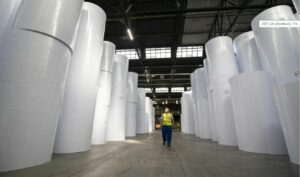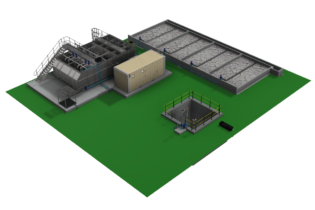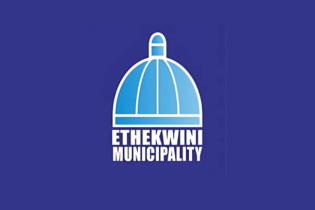Lack of awareness around the employment opportunities in the pulp and paper industries, combined with the challenges of South Africa’s poor education outcomes, have led to a talent shortage, but the industry’s collaborative efforts in addressing this are being rewarded.
The partnership between Paper Manufacturers Association of South Africa (PAMSA), industry, academic institutions, and government role players, which aims to create industry awareness and sustain a healthy talent pipeline for the pulp and paper industry, is paying dividends. So far, the partnership has seen improved Mathematics and Science marks at TVET Colleges through its tutoring initiatives, and an improved employment absorption rate between work experience placements and employment within the industry. It has also created a pre-competitive platform for all stakeholders (industry, academic institutions, and government) to discuss current evolving education gaps and challenges linked to this sector. “The challenge for the industry has been the low quality of graduates leaving secondary and tertiary education institutions with low competencies in English, Mathematics and Science, which meant a very small talent pool to draw from,” says Olga Bezuidenhout, PAMSA’s manager of education, recycling and stakeholder relations. PAMSA, with its partners, therefore decided to leverage industry knowledge from member companies to co-create solutions for education gaps that were commonly seen in graduates entering the industry. “The idea was to develop practical solutions to drive education and awareness at both secondary and tertiary education levels, with the participation of various key stakeholders within the industry,” explains Bezuidenhout.The scale of the solution
To achieve this, PAMSA established the Pulp and Paper Centre of Excellence in 2017 in partnership with Umfolozi TVET college and the FP&M Seta to serve industry on special projects nationally. In addition, having identified an education gap among employees already working within industry, the partnership created the Pulp and Paper Occupational Programme, which was sponsored by the FP&M Seta and offered by the Pulp and Paper Centre of Excellence nationally. Thus far, it has delivered about 300 graduates. The PAMSA Placement Programme, in partnership with the FP&M Seta, industry, and academic partners such as DUT, Unisa, Umfolozi TVET College and Ekurhuleni TVET College, has seen about 200 learners placed at mills for six- or 12-month periods over the past five years, with a positive absorption rate.PAMSA has also created free work-readiness and industry awareness workshops for schools within a 15km radius of member mills and academic partners linked to the pulp and paper industry, as well as offering technical short courses for industry members’ employees at no cost to employees.
These covered subjects like pulp and paper introduction, basic refining, water effluent treatment and wet-end chemistry. Plus, an industry awareness campaign was launched to educate scholars and students on the industry and the career opportunities that exist. To bolster the academic opportunities available, PAMSA, as the development quality partner in partnership with the FP&M Seta and industry, created 15 occupational qualifications covering paper, recycling and tissue. And, through the PAMSA Education Committee (industry, academic and FP&M Seta representatives) platform, a safe space has been created where all parties can come together and discuss pre-competitive challenges and initiatives that will be beneficial to the industry from an education and skills perspective. “The biggest challenge the sector faces is a gap, particularly in Mathematics and Science which affects PIVOTAL skills namely Professional, Vocational, Technical and Academic Learning programmes,” says Bezuidenhout. “This technical skills gap and the lower quality of graduates are both a result of our education system.” One of the curative interventions is PAMSA’s tutoring programme, which has offered resources and support to academic partners such as Ekurhuleni TVET College and Umfolozi TVET Colleges, which were greatly disrupted by the Covid-19 pandemic. Both colleges offer the NCV: Plant Process Operations (Pulp and Papermaking), and have noticed a substantial improvement in their students’ Maths and Science marks PAMSA is also promoting the industry across South Africa. “There is a lack of general awareness of what the pulp and paper industry entails among the broader public,” says Bezuidenhout. “The typical pathways into the industry are through family and peers. In addition, the industry is transforming, with a greater focus on packaging and dissolving pulp which is used in more novel applications such as textiles and pharmaceuticals.” “That’s why PAMSA is focused on driving awareness in partnership with leading tertiary institutions which offer qualifications for the industry. There are good employment opportunities in the industry for the right graduates – and we need to ensure that we are doing what we can to develop a strong talent pipeline of people with the right skills.”






